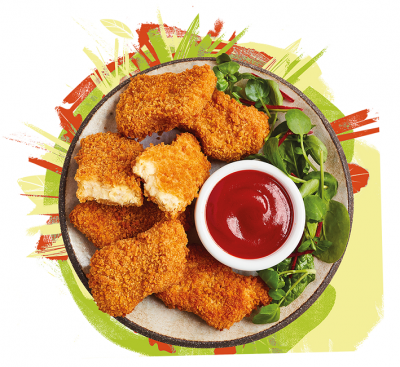Coronavirus: Restrictions on hospitality ‘fatal blow’ but no signs of panic buying

Venues across the country have been ordered to shut at 10pm and staff and customers must wear face masks when moving around premises, as the UK attempts to battle the growing numbers of Coronavirus cases.
At the height of the pandemic when the out-of-home sector was closed many food manufacturers were heavily hit. Suppliers attempted to divert stocks to the grocery sector, direct to consumers and donated to charity.
During a Government committee on the pandemic it was revealed that £20m of fresh, chilled and frozen stock was tied up in warehouses for the foodservice market.
Food and Drink Federation chief executive, Ian Wright has raised concern about the knock on impact of the move on the food supply chain.
“These new restrictions on the UK’s fragile hospitality and foodservice sector are a potentially fatal blow to manufacturers who specialise in supplying the hospitality sector,” he said.
“Many pubs and coffee shops will not be able to trade profitably under these new rules and will have to close again, with further threats from enforced closure due to local or national lockdowns. Those businesses and their suppliers also now face losing their furlough lifeline.”
He has called on the government to heed the recommendations of the Treasury Select Committee and consider a targeted extension of the Coronavirus Job Retention Scheme for the hospitality sector and its manufacturing supply chain.
Unprecedented
“With a vaccine and end to social distancing, these ‘squeezed middle’ businesses will thrive again. By extending their support through this unprecedented but limited period, these businesses can play a full part in building a jobs-rich recovery beyond the pandemic, preventing the unnecessary economic damage of business closures and the scourge of long-term unemployment,” he said.
This view has been backed by the British Frozen Food Federation (BFFF).
Richard Harrow BFFF chief executive said: “We are concerned for our members who supply the foodservice and hospitality sector. Many are already struggling and were just starting to get back on their feet after the success of Eat Out To Help Out. The new measure is a blow for these members and we hope the government will recognise the challenges they are facing and continue to offer support.”
However, concerns that any restrictions could lead back to the panic buying days at the beginning of the pandemic seem unfounded but the supply chain is preparing.
Harrow said: “There are plentiful food supplies in place and no need for panic buying. Grocery retailers and their supply chain partners have had several months to adapt to higher levels of demand and so are well placed to deal with any further increases.”
James Bielby, chief executive of the Federation of Wholesale Distributors, said that wholesaler sales data does not yet show any evidence of retailers stocking up in anticipation of a return to panic buying.
“Wholesalers will be looking to increase capacity and stockholding to anticipate a number of scenarios, including a shift from catering to retail lines, supply issues in the months following the end of the EU transition period, and potential production and distribution issues if significant numbers of supply chain workers are forced to isolate,” he said.
Panic buying
“They are also preparing for the Christmas surge in seasonal products. If there is a return to panic buying, they will be looking to suppliers to ensure their retail customers are allocated stock in line with demand during the previous surge, rather than historic data. They will be work with their customers and Trading Standards to move on residual ambient and frozen stock which is near to or beyond its Best Before date.”
Meanwhile. Andrew Opie, director of food & sustainability at the British Retail Consortium, said: “Supply chains are stronger than ever before and we do not anticipate any issues in the availability of food or other goods under any future lockdown. Nonetheless, we urge consumers to be considerate of others and shop as they normally would.”
A spokesman for the British Meat Processors Association added: “Our members have been working closely with their retail customers throughout the pandemic, and whilst supply chains were stretched, our industry worked hard to ensure food was on the shelves. They are prepared for an event such as panic buying in the future, and are in a good place to serve the needs of their customers. The industry has done this whilst ensuring the health and safety of employees is an absolute priority. To echo the Government, we would urge the public to buy only what they need and to think of others when buying food.”
This comes as more than two thirds (66%) of British adults, according to a new YouGov survey, are worried about the impact that a second wave of COVID-19 would have on UK food supplies.
Whereas only 7% were worried this time last year, nearly five times that number (34%) are now concerned what the next decade will bring, and less than half (48%) are confident that the food and farming system is prepared for a second wave of Covid-19 or a future pandemic.
The survey of over 2,000 adults carried out on behalf of the Agricultural Biotechnology Council, also found that one in three (32%) are more worried about the availability of fresh food in the UK now or in the next year, compared to the views of food security in other countries.
















